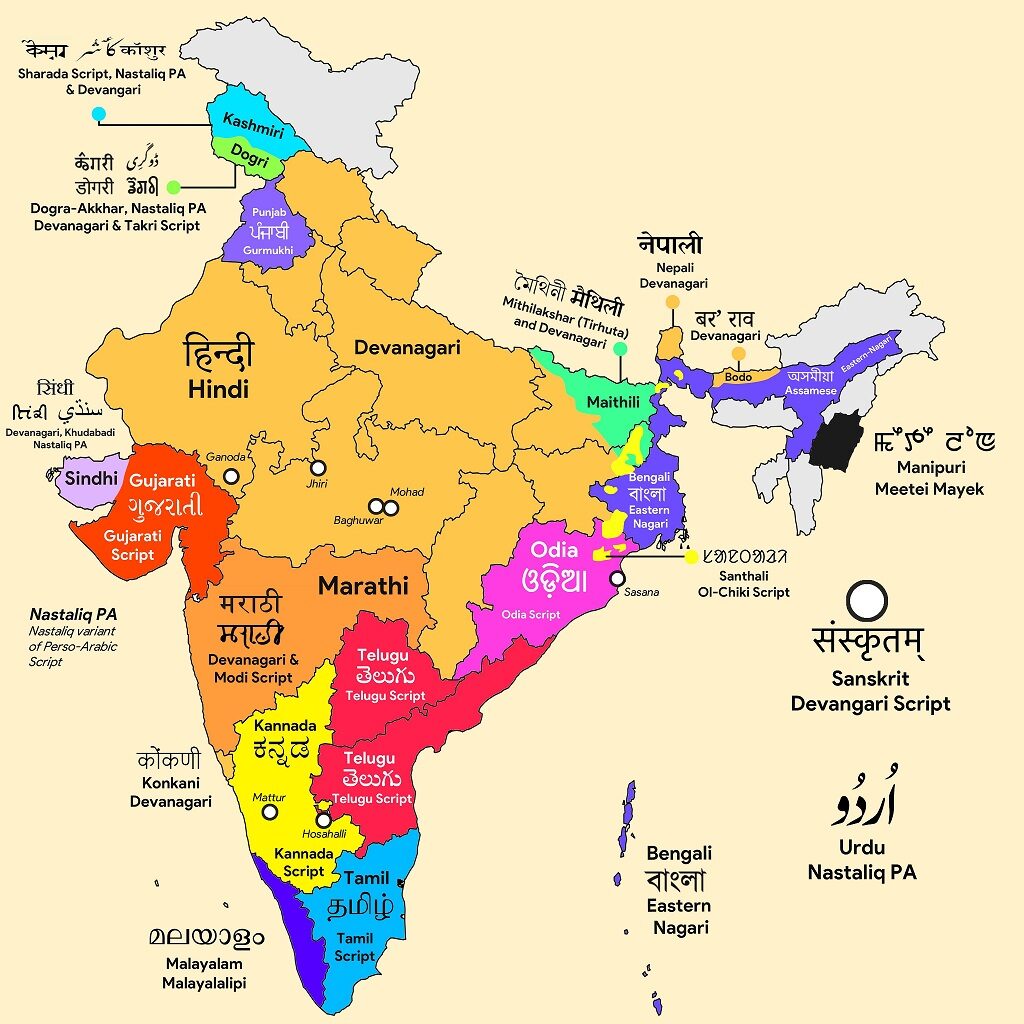
India being an ancient country with diverse culture and countless traditions, has given space for the truth and development of art and literature since time immemorial. The growth of literature has paved the way to the birth , evolution and development of many languages. As a result of which India has more than 19,500 mother tongues spoken according to some census.
The diversity which is to be ordered and celebrated has become a bone of contention and a sore spot several times. The system of division of states based on languages, which was initially discarded, hasn’t helped either. For example, the contention for river Cauvery water between Karnataka and Tamil Nadu has turned into a fight between Kannada and Tamil at times.
It is not that goal to replace Hindi with regional languages but to slowly decrease the use of English, which is a colonial legacy, to an extent.
Notwithstanding the number of languages, the Indian constitution has recognised 22 languages as scheduled languages. According to the article 343 (1) of Indian constitution the official language of union shall be Hindi in Devanagari script. It has directed that the Parliament can transact in Hindi or English. Hindi is given prominence as a matter of convenience as many can understand it. It was a long-term vision of our Constitution makers to slowly replace the indigenous Hindi in place of English.
Hindi versus regional language debate
The return of Hindi being imposed on streets is not a new one. It has become a strong political weapon for regional political parties for their benefits. It is intense in southern India especially in Tamil Nadu. This can be explained by its Dravidian politics which has been in practice. The notion of Aryans and Dravidians, where the former who are from ‘outside’ are pressed against the native Dravidians is still rampant, even though the entire argument has been fully debunked scientifically. The political parties thrive on this, thereby consolidating the monopoly in the state. Any sort of conversation around Hindi is pushed back, where the same parties do not necessarily have any issues over English.
The main point of the conversation is forgotten amid the chaos. It is not that goal to replace Hindi with regional languages but to slowly decrease the use of English, which is a colonial legacy, to an extent. The use of Hindi doesn’t mean everyone must become scholars in the language and forget about their mother tongues. It is sufficient and just desirable that everyone can understand the language, so that it can act as a bridge between people of two different languages.
It is a fact that English has helped India a lot in our interaction with the world, in use of technology and has even created employment opportunities across the world. But it doesn’t mean that it is essential to continue in the same path without a touch of indigenous flavour. Japan for example has progressed in terms of technology and sciences without a large pool of English speaking intellectuals.
Pep Guardiola , the legendary football coach, makes it a point to learn and use the language of whichever country he works in and insists on his players to do the same.
It is necessary to have tried to improve languages of our own weather rather than continue with colonial language just because it has been taught to us in this way. In Kannada there is a saying that just because father has planted that tree doesn’t mean we go and hang ourselves on it. Many stars like Lionel Messi cannot even speak English, still they Are accepted and celebrated worldwide.
Language is also a form of soft power through which a nation establishes its identity. Pep Guardiola , the legendary football coach, makes it a point to learn and use the language of whichever country he works in and insists on his players to do the same. This is not to say that English must be banished altogether from the discourse, but it is time for the nation to take a conscious decision to forge its own identity and culture rather than clinging to the same colonial practice.
It is time for the people to realise that the use of Hindi in official discourse between states or with the central government doesn’t endanger their respective mother tongue on the contrary it signifies the large heartedness of the people to reach some consensus and unifying the nation even with some inconveniences.
(The opinion expressed are author’s own and does not necessarily reflect the views of SamvadaWorld)
Shreyas has an M.Sc. in Psychology and serves in NIMHANS. He writes regularly on politics, society, international affairs and technology. Views expressed are the author’s own and do not necessarily reflect the views of SamvadaWorld or its staff.
